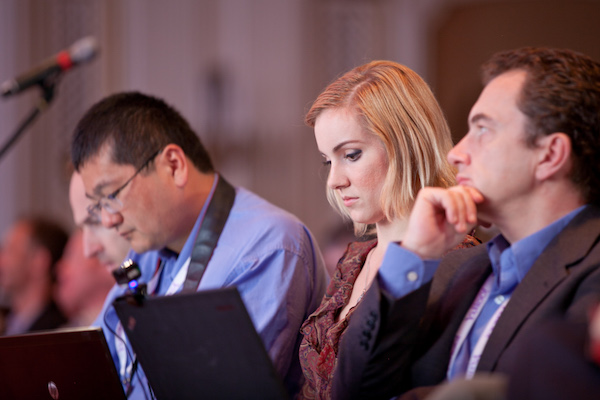Social media, class of ’07

We all belong to an insiders’ club. What’s yours?
By 2007, Charlene Li and I had gotten the approval from Forrester to write the book that become Groundswell. She was already well-known as the top analyst covering the use of social media for business. With her help, I studied and became knowledgeable about that as well — enough to write blog posts and a book about it.
But this isn’t about content. It’s about people.
There were a few hundred people who were pioneers in the analysis of social media. The first and most prominent — and still the one with the biggest following — was Robert Scoble. Close in his wake was his coauthor on Naked Conversations, Shel Israel. But there were many, many others.
To be clear, I’m not talking about the people who stated companies like Twitter and Facebook and LinkedIn. I’m talking about the people who made it their business to understand the significance of the those platforms for business, media, and society.
Like any ridiculed and persecuted minority, we hung together. We compared notes. And we had an unfair advantage. We all knew and followed each other on these platforms and used them to connect.
We were the social media class of 2007. I was a freshman, Charlene was a junior, Scoble was a senior, but we were all sharing a coming-of-age experience, whatever our actual ages.
What’s interesting is how this affects our interactions in 2019.
Some of us are still focused on social media, and others have moved on to other things. But we share that bond of having understood the power of social and how to use it.
And we know each other, even if we don’t know each other.
A little while ago I got to present to a senior group at one of the largest financial services companies in America. Another presenter was Michael Brito. He introduced himself familiarly and I said “I don’t think I know you.” He was taken aback, since he obviously knew me. But a minute into the conversation, I realized I did know him. “You’re ‘Britopian’ aren’t you?” I asked. I had interacted many times with his social media presence without even taking note of his name.
These people are now my trusted network. One of them just got me a speaking slot at a conference. Others are working with me as an editor. If I need help, it’s rarely more than a connection or two away. I know they’ll know my reputation, and they know I’ll know theirs.
There are not many enemies in the social media class of 2007 — we tend to trust each other. Our group is loosely-connected but collectively powerful. It is an essential resource for me. More than that, I care about the people in it and want to help them.
I know people also feel this way about their college classes and business school classes. But I wonder if the same is true of other professional associations. Is this what it is like to be a kidney surgeon, or an elite architect, or a liberal democratic operative?
Did our early adoption of social media give us a special advantage, or is it just this way for everybody?
If you’re in the social media class of 2007, give me a shout out here. And if you’re not — are you in a group like this? How is it helping you?
It’s interesting how that door shut pretty quickly. I remember going to conferences and talking to folks struggling to position themselves as social-media experts circa 2012.
Class of 2006 for me (blogging – Twitter and other platforms some months later). And, yes, there was a unique bond among the early adopters. We were pioneers, evangelists, envelope-pushers. It was exciting and fun and I still keep up with a bunch of those initial connections in the early marketing/tech blogging scene.
Sony’s first corporate blogger just before Groundswell was published. And as the book led off, “Rick Clancy seemed worried.” Indeed, I was.
It’s hard to pinpoint when I started: I was blogging in 1997, and joined Twitter in late 2007. Then I ghostwrote half of Twitter Marketing for Dummies in 2009 before co-authoring Branding Yourself in 2010. So it’s hard to say where I would fall, but I remember many of the other early adopters as well. We had a thriving local ecosystem in Indianapolis and many of us were making our own splashes.